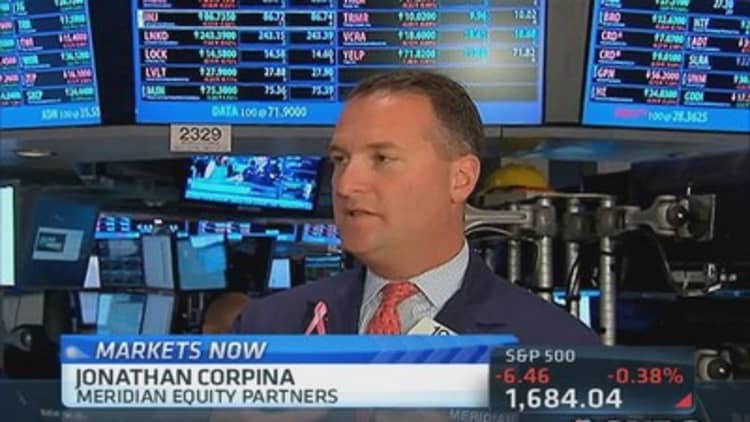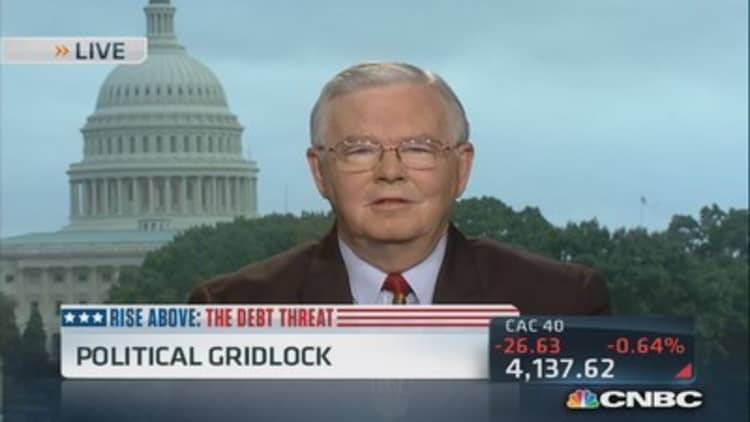It's becoming increasingly clear that federal government is going to remain shuttered until close to—or maybe even after—the Oct. 17th deadline to raise the nation's borrowing limit.
The weekend brought absolutely no movement, sending the shutdown into its second week. House Speaker John Boehner went on TV Sunday and said there were not enough votes to pass a clean continuing resolution re-opening the government.
White House officials dismiss that as flatly untrue given that at least 20 House Republicans have said they would support a clean CR, enough to pass the measure assuming nearly all Democrats vote yes.

Treasury Secretary Jack Lew, meanwhile, toured the Sunday shows to warn of the damage that would occur should Congress fail to raise the $16.7 trillion debt limit by Oct. 17th.
Treasury estimates it would have $30 billion cash on hand as of that date And depending on how much money comes in, Treasury could conceivably keep making all payments through the end of the month. But no one—not even Treasury—knows when after Oct. 17th the federal government might have to start "prioritizing" payments to ensure no actual bond defaults.
(Read more: A tweet underscores why Washington is stuck)
Treasury officials say they are not even sure they can make their systems, designed to make all or no payments, prioritize. It's totally uncharted waters and markets may react sharply close to Oct. 17th.
That kind of market movement—and resulting political panic—may be the only thing that forces some kind of agreement that re-opens the government and raises the debt ceiling. Should we get close to that point, many Democrats think the GOP will simply cave and accept a clean CR and debt limit hike.
That still seems very unlikely.
Instead, the more probable resolution is a deal, perhaps one currently being floated by Sen. Rob Portman,, R-Ohio, President George W. Bush's budget director, that would lock in sequester-level spending favored by the GOP along with some Medicare andSocial Security fixes previously offered by President Obama. It's not clear if Democrats would demand new revenue through loophole closures to accept this kind of deal, though they probably would. That's a tough, though not impossible sell, for Boehner, particularly if he can squeeze out one Obamacare change, possibly repeal of the medical device tax.

Ultimately, both sides are likely to want to take this fight off the table for the 2014 midterm election year so a fairly sizeable deal could materialize around the debt ceiling deadline that would come as a big relief to investors.
And any weakness leading up to that moment could be a big buying opportunity.
But there is still a not insignificant possibility that both sides refuse to move off their hardline negotiating stances and the nation defaults for the first time in its history. That would likely create a massive economic calamity with the power to reshape our currently intractable politics, likely through the expulsion of members of Congress thought to be responsible for the disaster.
Let's hope it doesn't come to that.
— By Ben White, POLITICO's chief economic correspondent and a CNBC contributor. White also authors the daily tip sheet POLITICO Morning Money [politico.com/morningmoney] Follow him onTwitter @morningmoneyben.


